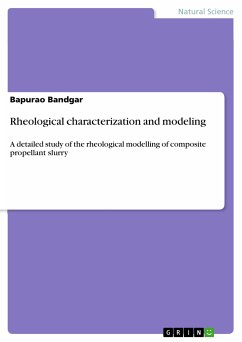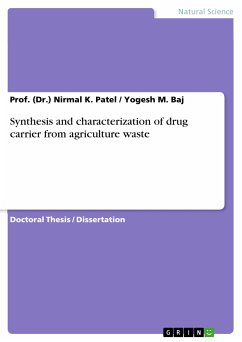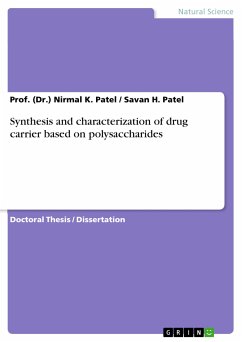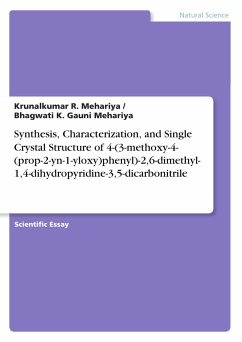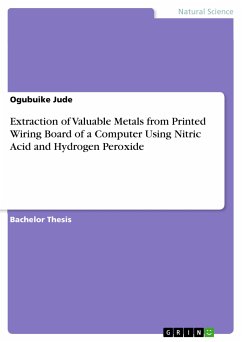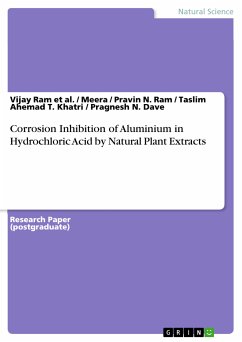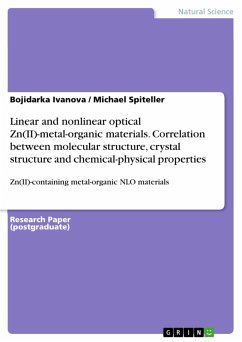Document from the year 2020 in the subject Chemistry - Other, grade: Research, , course: Research, language: English, abstract: A detailed study of the theological modelling of composite propellant slurry based on hydroxyl terminated polybutadiene (HTPB) prepolymer, Dioctyl adipate (DOA) plasticizer, toluene diisocynate curative, ammonium per chlorate (AP) oxidizer and aluminium powder as a metallic fuel is carried out and studied the effect of each of the ingredients on the composite propellant slurry (cps). The effect of temperature on viscosity of polymer and plasticizer system was studied at different temperatures, and torques (shear force). The polymer hydroxyl terminated polybutadiene (HTPB) and plasticizer (DOA) viscosity data showed temperature dependence and independent of the torque (i.e. shear force). Therefore, the viscosity data has been modelled to polynomial model of a fourth order with temperature for polymer and plasticizer. The results showed good agreement between theory and experiment. These polynomial model results have been compared with Arrhenius model. The polynomial model showed better comparison within ± 4 % error compared to Arrhenius model with ± 4 to ± 22 % error over the temperature range of 30 - 70 °C. The viscosity of the mixture was also studied at different weight fractions of the polymer:plasticizer. The viscosity of mixture showed dependence on the weight fraction of the plasticizer and temperature. Rheology concerns itself with the mechanism of flow and deformation of matter. Deformation is a phenomenon, which is associated with a volume element. This term was invented by Prof. Bingham of Lafayette College, Indiana. Significant advances have been made in polymer rheology, in bio-rheology and in suspension rheology. There has been a significant appreciation of the importance of rheology in the chemical processing industry like medicine, paints and printing ink technology etc. and biotechnological industries. It has also made important contributions in food technology, building and structural engineering, cosmetics, drilling operations and oil wells etc.
Dieser Download kann aus rechtlichen Gründen nur mit Rechnungsadresse in A, B, BG, CY, CZ, D, DK, EW, E, FIN, F, GR, HR, H, IRL, I, LT, L, LR, M, NL, PL, P, R, S, SLO, SK ausgeliefert werden.

